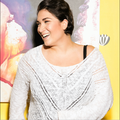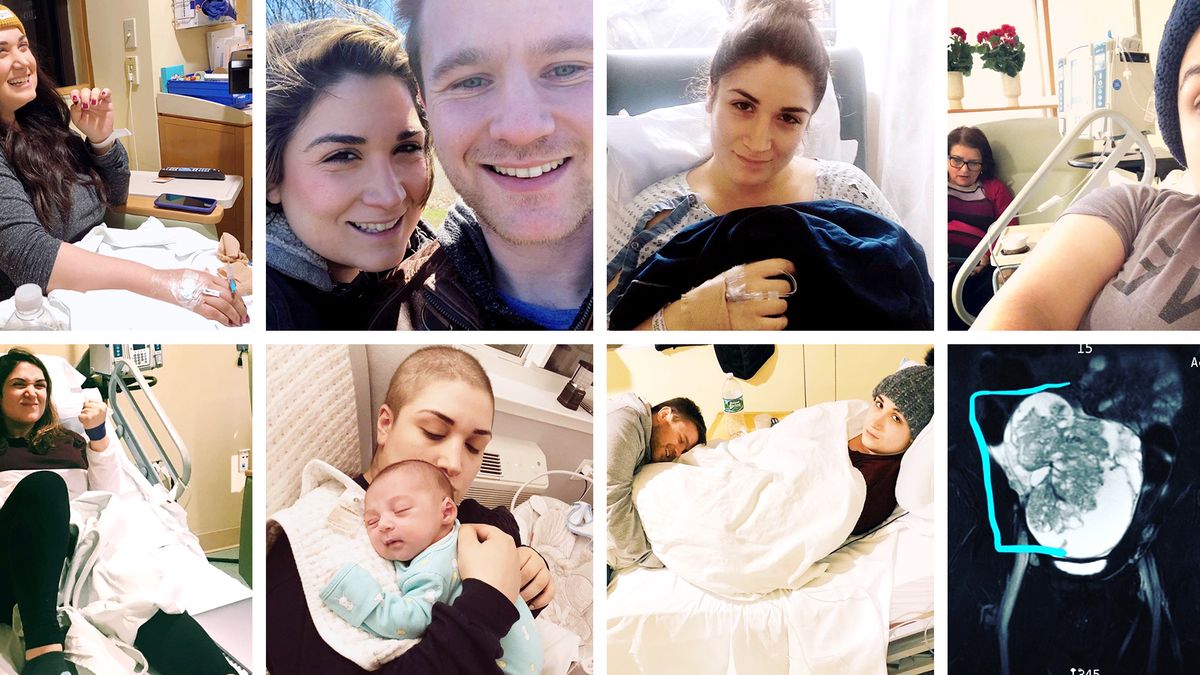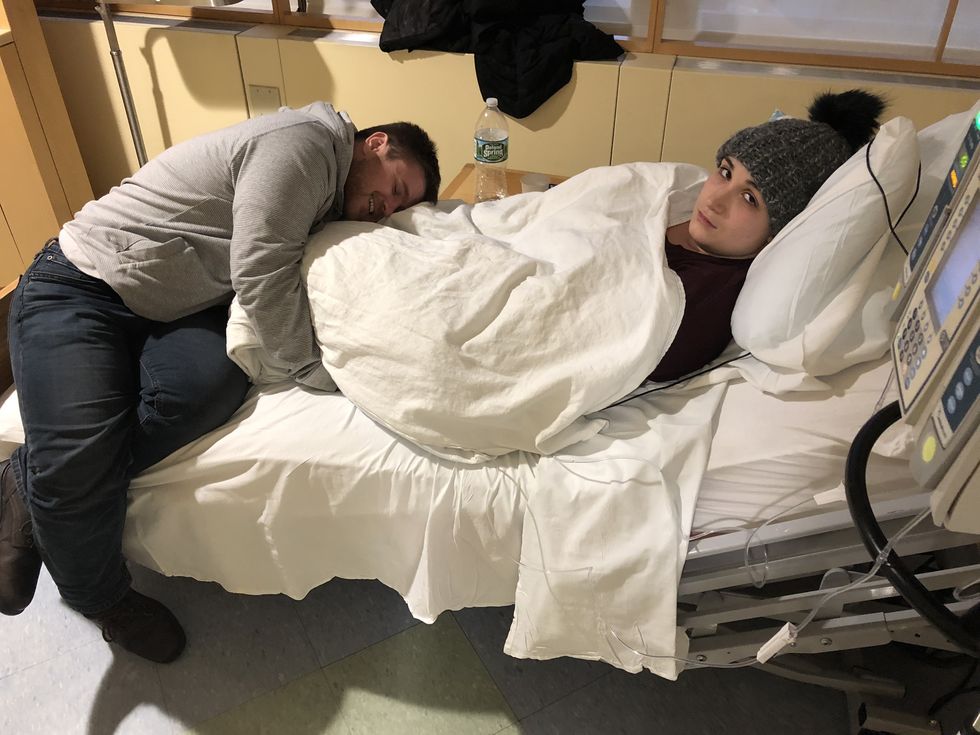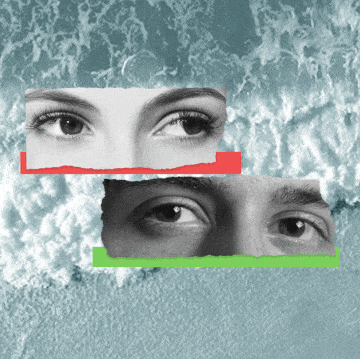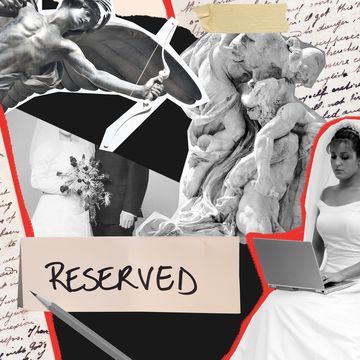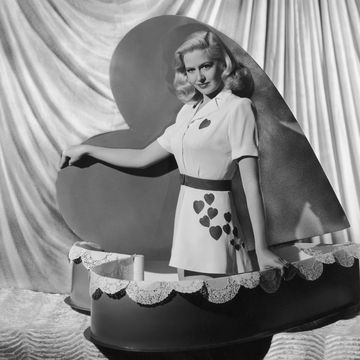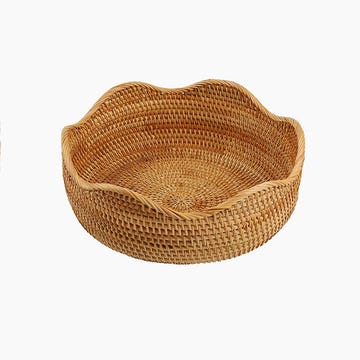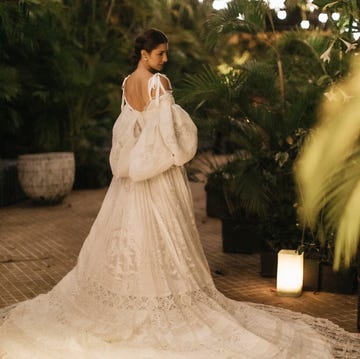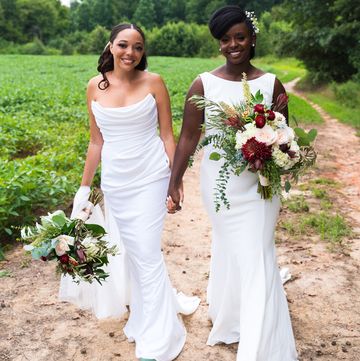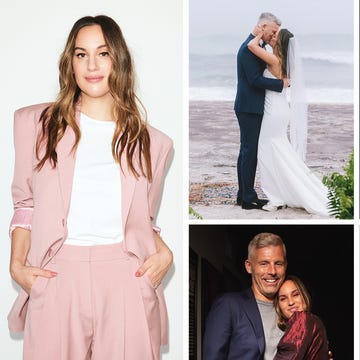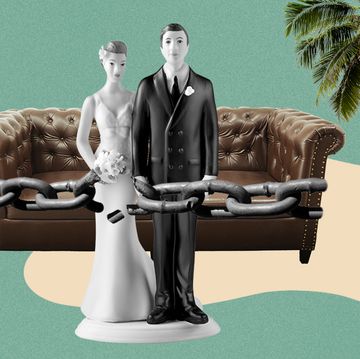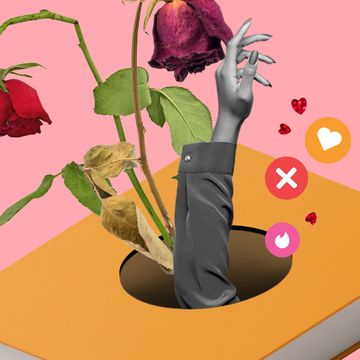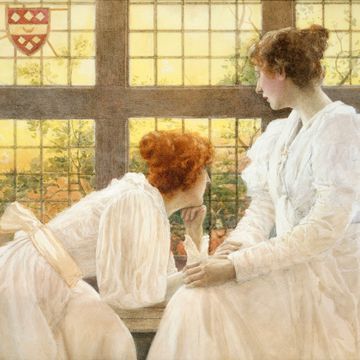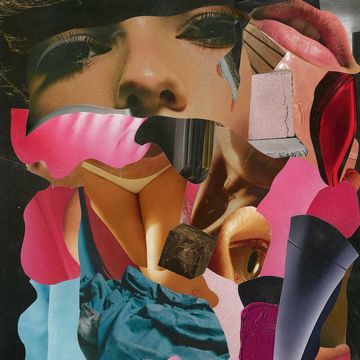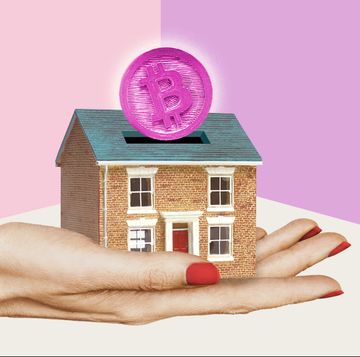When I was 24 years old, I had just moved into my own apartment, was working at my dream job, and was settling into a serious relationship with my boyfriend of three years. And then, a curveball: In October 2017, I was diagnosed with an extremely rare type of cancer called ovarian germ cell cancer.
This type of cancer is hard to detect early on. I dealt with years of bloating, cramping, and jolting pains in my side—all symptoms that were dismissed by my regular doctors before a series of hospital visits finally led to my diagnosis.
Dealing with cancer in my 20s was obviously tough. After my diagnosis came months of treatment, including major surgery, weeks of recovery, and several rounds of chemotherapy. Being so young, the diagnosis suddenly threw everything into perspective. The arguments I had with friends didn’t matter so much. My boyfriend’s annoying little habits didn’t bother me anymore. I was 24, and I was fighting for my life.
But it was more than just fighting to survive. I was fighting to live. I always envisioned my future in a certain way: a cool job, lots of travel, a husband and, most importantly, kids.
Just a few months before I was diagnosed, my sister and her husband announced they were expecting their first child, my first nephew. Babies were at the forefront of my mind from that point forward.
My boyfriend, Joe, and I talked about kids a lot. We knew it wouldn’t be any time soon, but we always saw a big family in our future. So when I first found out they had to surgically remove my ovary, I panicked. I didn’t remember much from biology class, but I knew I needed my ovaries to churn out some eggs that could eventually turn into babies.
My doctors explained that I probably wouldn’t be barren forever. Even though the cancer had taken over my right ovary and fallopian tube, my other ovary was perfectly intact. They said it should produce all the eggs I would need.
I was barely able to breathe a sigh of relief before the reality of chemotherapy settled in.
Chemo isn’t something you think about much until you’re going through it. I knew it made you feel sick and could make you lose your hair, but it never occurred to me, until I was actually facing three rounds of extremely high-dose chemo, that I would literally be pumping poison into my veins. While the drugs were fighting the cancer inside of me, they were fighting the healthy parts, too. My last remaining ovary was standing on the battlefront with no armor, and some very large, scary enemies were charging at it head on.
The days leading up to chemo were inexplicable. I was so afraid of losing my fertility. I remember sitting on my bathroom floor with my mom, sobbing uncontrollably in her arms. I could hear her fighting back tears in her voice as she promised me that, one today, this “whole cancer thing” would all be over, and I’d have a new story to tell.
Still, I saw the life Joe and I had imagined together slowly fading away.
When I met with my oncologist, she told me there was a good chance that I wouldn’t lose my fertility after my chemotherapy, but there was no way to tell for sure. “Good chance” wasn’t going to cut it for me. There had been a “good chance” that I didn’t have cancer; in fact, every doctor I had before my diagnosis told me there was less than a one percent chance that I actually had it. It felt like the odds were against me.
I immediately launched into research. I was introduced to a fertility expert who works closely with patients at the hospital I was admitted to, and she explained that my best option was to freeze my eggs.
Most of my friends were trying their hardest to prevent pregnancy, and here I was, desperately grasping at my ability to conceive. I never thought that at 24 I would need to think about freezing my eggs, but it was just one of the many unexpected paths cancer took me down. I couldn’t do fertility preservation and chemo at the same time, since the chemo drugs would counteract the fertility drugs, and my oncologist would only let me put off chemotherapy for a maximum of one week. She said the risk of my cancer growing back after the surgery I had just a few weeks prior was just too high.
In 2017, the week of Thanksgiving, I underwent fertility treatments, a process unlike anything I ever expected. I’ve always been afraid of needles, and freezing your eggs involves giving yourself a lot of shots. As much as Joe wanted to help, he was even more afraid of needles and couldn’t bring himself to do it. So I gave myself two to five different shots every day for one week. The fertility doctors said it would get easier, but I never got used to injecting myself with anything. Each shot was its own struggle.
Every day during fertility treatment, I would have to go in to the clinic to have my blood levels checked and get a vaginal ultrasound to track the growth of my follicles (aka, my eggs). Just a few weeks earlier when I was getting diagnosed, I had my first ever vaginal ultrasound, and it was the scariest, most uncomfortable procedure I ever had. It was funny how, by this point, that super scary ultrasound felt like nothing at all anymore.
When I checked in to the clinic each morning at 6 A.M., I couldn’t help but look around and feel a wave of overwhelming anxiety. I was by far the youngest person in the clinic, which was crowded with women and, mostly, their husbands. I would have to distract myself while I waited for my name to be called or I’d have a panic attack before I even realized it. After all, this was just the beginning for me. This was just the freezing process. If my fears came to fruition and I wasn’t able to conceive naturally in the future, I would have to be back here again and pray the in vitro works.
By the end of the week, I was able to harvest and freeze eight eggs. The goal was to harvest 10, so eight was pretty good, especially considering I only had one ovary to work with. The day before I started my chemo treatment, I got a phone call from my fertility doctor telling me my viable eggs were frozen and wishing me luck on everything to come.
Today, I’m a little more than a year out from chemo. I’ve yet to return to a regular cycle. While there have been “signs” that my reproductive system has slowly started back up, nothing is all that reassuring. Each month is different. Usually, around the time I’m due for a period, I experience some form of PMS that I never had before my diagnosis: a combination of terrible cramps, skin breakouts and, the worst, mood swings.
None of my doctors could give me exact answers on when I could expect a regular cycle back. They’ve just told me that it takes “some time” for my system to get up and running as usual. At this point, my body kind of feels like a broken down car that’s been through rounds and rounds of repair. Some things will never work quite the same, and some things should work just fine.
As far as the eggs I have frozen in the bank, those will be waiting for me somewhere in a cryo-freezer out in Massachusetts until I’m ready for them. Even when I am ready, there are no guarantees on whether those will be viable when they’re thawed or if in vitro will even work.
I think about whether or not I’ll be able to have children all the time. Every time I play with my one-year-old nephew, I wonder if I’ll ever be able to have my own little mini-me. I’ve learned so much about the process of conception, too. So much needs to align for even the healthiest person to get pregnant, so it isn’t lost on me that my odds are probably significantly lower than most other women.
Still, I am grateful. Cancer forced me to think about my health and my life in a completely new way, but most importantly, it taught me that statistics and odds aren’t everything. I had less than one percent chance of getting diagnosed with my cancer at 24, and I did. So, even if there’s a low “chance” of conceiving my own child, I won’t let it worry me too much. At least for now.
Videography by Alysha Webb. Hair styling by TRESemmé.
